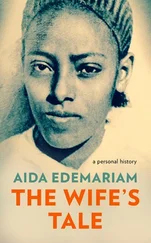M. I certainly was very much struck with an alteration for the worse. Besides, he dresses very extraordinarily.
D. Slovenly?
M. Oh, no! no! He’s very dandified, and yet not an English dandy. When I saw him he was dressed in a curious foreign cap, a frogged great coat, and had a gold chain round his neck and pushed into his waistcoat pocket. I asked him if he wore a glass and he took it out, whereupon I found fixed to it a set of trinkets. He had also another gold chain tight round his neck, something like a collar. He had then a plan of buying a tract of land and living in South America. When I saw Scrope Davies and told him that Byron was growing fat he instantly said, ‘Then he’ll never come to England.’…
M. Rogers is the most wonderful man in conversation that I know. If he could write as well as he speaks he would be matchless, but his faculties desert him as soon as he touches a pen.
D. It is wonderful how many men of talent have been so circumstanced.
M. Yes! Curran, I remember, began a letter to a friend thus: ‘It seems that directly I take a pen into my hand it remembers and acknowledges its allegiance to its mother goose.’…
D. Have you read the Confessions of an Opium Eater ?
M. Yes.
D. It is an extraordinary piece of writing.
M. I thought it an ambitious style and full of bad taste.
D. You should allow for the opium. You know it is a genuine work.
M. Indeed.
D. Certainly. The author’s name is De Quincey. He lives at the lakes. I know a gentleman who has seen him.
Murray. – I have seen him myself. He came to me on business once…There never was a man so ignorant of the world’s ways. 13
The conversation at Murray’s often turned to Byron, and it was upon the romantic poet that the young Disraeli, as he grew into manhood, chose to model himself, both in his clothes and in his dandiacal gestures as suggested in the portrait of him, drawn some time later, by Daniel Maclise. In this portrait he is depicted leaning on a chimneypiece, beringed left hand on hip, right hand playing with his luxuriant curled hair.
2 A YOUNG MAN OF HIGH FASHION
‘You have too much genius for Frederick’s Place. It will never do.’
DISRAELI WAS SEVENTEEN YEARS OLD when he began to record the conversations in Murray’s dining-room. He had already become an occasional consultant of the publisher, who from time to time sought his advice on manuscripts that were sent to 50 Albemarle Street in the hope of their acceptance for publication; and it was on Disraeli’s recommendation that Murray published Fairy Legends and Traditions in the South of Ireland by the Irish antiquary, Thomas Crofton Croker, a book highly praised by Sir Walter Scott, which became a bestseller.
By then Disraeli, as he had begun to sign himself, dropping the apostrophe, had become an articled pupil in a leading firm of solicitors in Frederick’s Place, Old Jewry. The senior partner, Thomas Maples, was a friend of Isaac D’Israeli; and it seems to have been agreed between them that, in due course, Benjamin should be admitted into partnership and marry Maples’s daughter.
Benjamin himself had not been at all taken with this arrangement; but his father was ‘very warm’ about the business. Indeed, it was ‘the only time in his life’, so his son records, ‘in which he exerted authority’. Benjamin accordingly went to work in the office of one of the partners, Mr Stevens, who, Benjamin recalled, ‘dictated to me every day his correspondence which was as extensive as a Minister’s; and when the clients arrived I did not leave the room, but remained not only to learn my business but to become acquainted with my future clients. They were in general men of great importance – bank directors, East India directors, merchants…it gave me great facility with my pen and no inconsiderable knowledge of human nature.’ 1
Disraeli, however, became ‘pensive and restless’. He could not reconcile himself to the thought of being a lawyer; and when he returned to Bloomsbury Square of an evening he did not take up the legal textbooks which he was meant to be studying, but helped himself to more interesting books from the tightly packed shelves of his father’s library.
When he went out in the evening he was careful not to dress as the articled clerk he was determined not long to be, setting himself apart from his colleagues by a style of dress – a black velvet suit with ruffles and black stockings with red clocks – as well as a manner which was considered flamboyant, even in those early years of the reign of King George IV. ‘You have too much genius for Frederick’s Place,’ a lady pleased him by suggesting one day. ‘It will never do.’ 2
His manner, so another lady remarked, was entirely fitted to his ‘rather conspicuous attire’ and his theatrical gestures as he ‘delivered himself of high-flown compliments and sharp asides’. He performed his duties in Frederick’s Place adequately; but, like Charles Dickens, who was to start work in a smaller firm of solicitors a few years later, he yearned for other things. The books he read in his father’s library, the distinguished men he met at work and the conversations he had heard at Murray’s dinner table stirred his imagination and ambition. He felt himself worthy of a more dramatic future than that promised by the testaments and conveyances and ledgers of Frederick’s Place, Old Jewry.
Visitors to the house at 6 Bloomsbury Square, where his family had moved in 1817, described him as looking as though he were bored to death by the life that was led there. William Archer Shee, then a boy some years younger than himself, who had come to a children’s party at the D’Israelis’ house, recalled seeing him ‘in tight pantaloons with his hands in his pockets, looking very pale , bored and dissatisfied , and evidently wishing that we were all in bed. He looked like Gulliver among the Lilliputians, suffering from chronic dyspepsia.’ 3
In the office as well as at home, Disraeli spent as much time as he could in writing to please himself rather than the partners of Messrs Swain, Stevens, Maples, Pearse and Hunt. One of the earliest, if not perhaps the first, of his completed productions was a melodramatic play in verse, Rumpel Stilts Kin , based on the German folk tale about a deformed dwarf, Rumpelstiltskin, written in collaboration with William George Meredith, his sister Sarah’s rather staid and tedious fiancé, an undergraduate at Oxford and heir to a rich uncle.
A few months after Rumpel Stilts Kin was finished – and perhaps performed by the D’Israeli and Meredith families – Disraeli delivered to John Murray the manuscript of a novel to which he had given the title Aylmer Papillon , a short work intended, as its author said, to be a satire on ‘the present state of society’. Murray evidently did not rate the novel very highly but, reluctant to offend his young protégé, could not bring himself to write a letter of rejection. After a month had elapsed, Disraeli approached the publisher again; and, alluding impertinently to Murray’s burning of Byron’s Memoirs as being too salacious for publication, Disraeli wrote, ‘And, as you have some small experience in burning MSS, you will perhaps be so kind as to consign [mine] to the flames.’ 4
In the summer of 1824, Benjamin, by now aged nineteen, and his father, both of whom had been in indifferent health of late, decided to go away for six weeks on holiday on the Continent with Sarah’s fiancé William Meredith, who by then had taken his degree at Oxford. They went by steamer to Ostend and thence by diligence to Bruges, where Benjamin wrote the first of several long letters to his sister describing the places they visited, the sights they saw and, in some detail, the meals they ate. Both Benjamin and his father were enthusiastic trenchermen and Sarah was regaled with accounts of memorable meals which they enjoyed in the estaminets on their route through the Low Countries and the Rhine Valley.
Читать дальше











